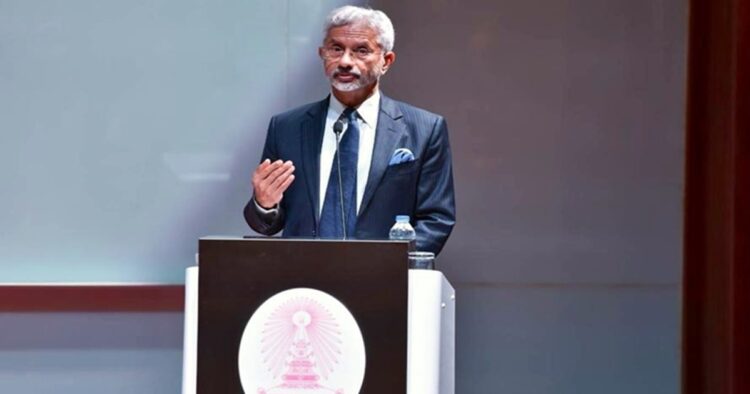Bharat’s External Affairs Minister, S. Jaishankar, spoke on Saturday about the significance of the Quad group, which includes Bharat, the United States, Australia, and Japan. He emphasized that the Quad represents the emergence of a multipolar world order, moving away from Cold War ideologies and opposing the concept of spheres of influence. Jaishankar highlighted the collaborative approach of the Quad, which aims to democratize global spaces and assert the autonomy of member countries in decision-making.
Jaishankar addressed the ‘Quad Think Tank Forum’ during the Raisina Dialogue, a prominent conference on geopolitics and geoeconomics held in India’s capital. He stressed the importance of the Indo-Pacific region and explained how the Quad’s formation challenges the historical division between the Indian Ocean and the Pacific, which originated from American strategic priorities after World War II.
The roots of the Quad trace back to the joint response to the 2004 tsunami disaster, with the idea formally proposed by then-Japanese Prime Minister Shinzo Abe in 2006. However, the initiative faltered initially, only to be revived in 2017 and upgraded to ministerial and summit levels in subsequent years. Jaishankar underscored his personal involvement in these developments, highlighting the commitment of all four member countries to the Quad’s objectives.
At the session, there was a consensus among participants that the Quad should benefit all countries in the region, dispelling concerns about its exclusivity. Discussions also revolved around efforts to expand the Quad’s outreach to like-minded nations, reflecting a broader commitment to regional stability and cooperation.
Speaking on behalf of US Secretary of State Antony Blinken, Deputy Secretary of State Kurt M. Campbell emphasized the Quad’s role in promoting a Free and Open Indo-Pacific (FOIP). He described the Quad as a platform for collective action aimed at delivering tangible benefits to the region while preserving the freedom of choice for all stakeholders.
Australian Foreign Minister Penny Wong, joining the session virtually, echoed the positive impact of the Quad in the Indo-Pacific. She highlighted the group’s efforts in providing transparent and valuable public goods that address the region’s priorities. Wong likened the Quad to a lighthouse, symbolizing its role in illuminating a positive vision for the Indo-Pacific.
The discussions at the Raisina Dialogue underscored the Quad’s commitment to shaping a more inclusive and multipolar world order, emphasizing cooperation over competition and advocating for the collective interests of all stakeholders in the Indo-Pacific region. As the dialogue continues, leaders reaffirm their dedication to fostering regional stability and prosperity through collaborative efforts.

















Comments